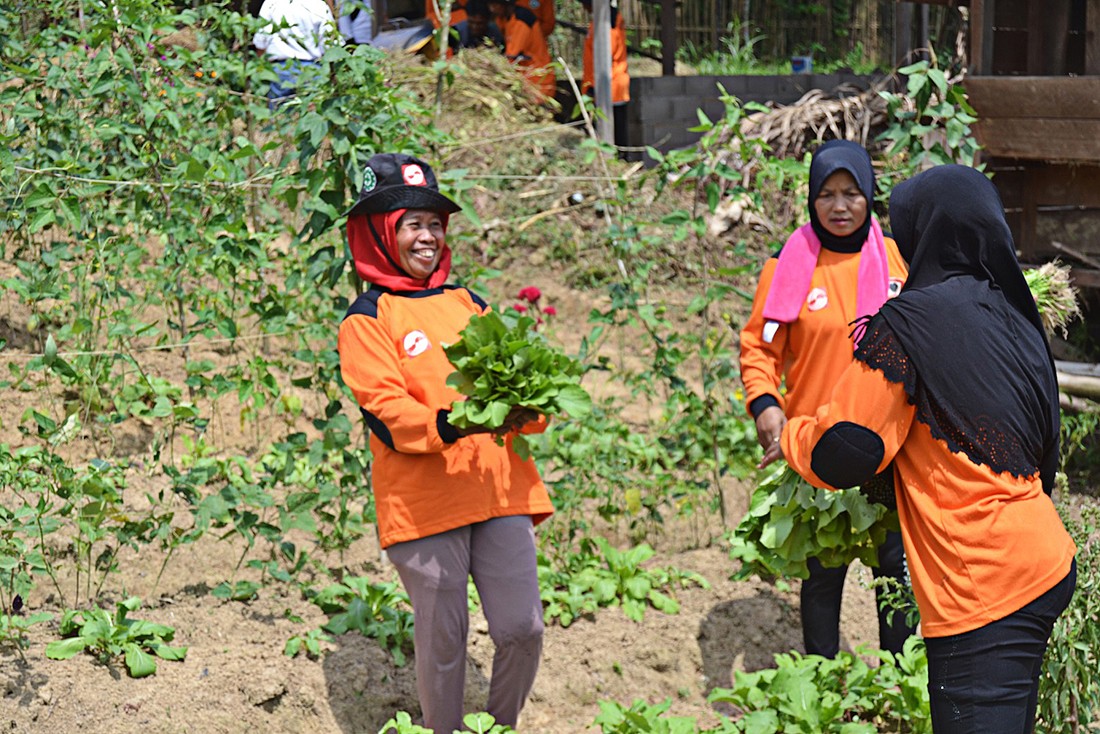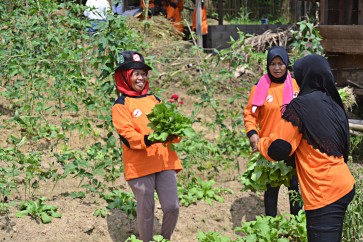Popular Reads
Top Results
Can't find what you're looking for?
View all search resultsPopular Reads
Top Results
Can't find what you're looking for?
View all search resultsWomen can sustain agriculture, but better data needed to support them
A set of policies that boosts women’s participation in agriculture could be a promising breakthrough given the declining number of farmers.
Change text size
Gift Premium Articles
to Anyone
O
ver the decades, the feminization of the labor market has become more visible in Indonesia including in agriculture, which is inherently more associated with males than females.
The results of the 2018 Inter-Census Agricultural Survey (SUTAS) revealed that although the sector is still male-dominated, female farmers have increased by about 700,000 in the previous five years.
In 2018, female farmers accounted for around a quarter of the total number of 33.5 million farmers in Indonesia.
A set of policies that boosts women’s participation in agriculture could be a promising breakthrough given the declining number of farmers, especially men, due to ageing and employment shifts to nonagricultural activities in rural areas.
Some priority measures could include enhancing women farmers’ access to productive resources and improving their agricultural skills through informal education and training.
Scholars call this an ongoing global trend the feminization of agriculture. Unfortunately, although women have broadened and deepened their involvement in agricultural production, they still lag behind male counterparts in many aspects ranging from human capital to access to productive resources, such as land and credit.
The SUTAS results showed that although our farmers are generally lowly educated, the proportion of female farmers who were uneducated or only completed elementary education is higher (74 percent) than that of male farmers (64 percent).

















